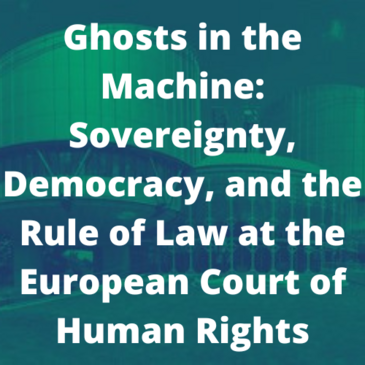Date: Tuesday, 28 June
Time: 18:15 - 20:00. Note that this is a HYBRID EVENT.
Physical Location: Rotunde, Cartesium Building, Universität Bremen
Hybrid Attendance: Please email xiaolingprotect me ?!uni-bremenprotect me ?!.de by June 28, 2022, to register.
Event Language: English
Abstract: This talk draws on ethnographic research at the European Court of Human Rights in Strasbourg, France. It examines how people reconcile an institutional commitment to justice and democracy with ultimately incremental and technocratic approaches of human rights law. The talk is part of a broader research project examining the ways in which European human rights works as a semi-coordinated discursive and epistemic community that channels visions of social change through legal infrastructures and shared registers of law and diplomacy. The project follows on earlier work examining both the hopes and, more centrally, the disappointments that accompany the practice of democracy and social change in post-Cold War Europe.
Jessica Greenberg is an associate professor of Anthropology at the University of Illinois, Urbana-Champaign (UIUC). Her work is motivated by a long-standing interest in the everyday life of social movements, as well as the hopes and disappointments that have animated democratic political activism after the Cold War. Her first book, After the Revolution: Youth, Democracy, and the Politics of Disappointment in Serbia (Stanford 2014) chronicles the lives of student activists as they confront the possibilities and disappointments of democracy in the shadow of political transformation in Serbia. Her current research builds this interest in democratic practice, activism and power in the context of European integration. Drawing on ethnographic and archival research at the European Court for Human Rights, she examines how new definitions of European belonging and democratic practice are being defined through international human rights regimes.

